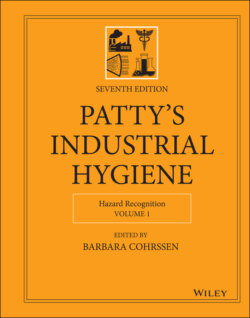Читать книгу Patty's Industrial Hygiene, Hazard Recognition - Группа авторов - Страница 48
3 FACTORS INFLUENCING ETHICAL MISCONDUCT
ОглавлениеGeneral business ethical misconduct can take many forms including lying, falsification of records, alcohol and drug abuse, conflict of interest, stealing, abusive behavior (including sexual harassment and bullying), and violating a company's policy regarding receipt of gifts or entertainment.7 A 2002 study in Great Britain of occupational hygienists observed the following common forms of ethical misconduct: plagiarism, failure to protect confidential data, failure to share credit on a report, fabrication of data, criticizing the ability or integrity of another professional for own gain, withholding or disguising data, using a survey design to favor a specific outcome, destruction of data contradicting a desired outcome, and deliberately not reporting an incident (12).
Factors influencing ethical behavior include personal values, supervisor influences, senior management influences, internal drive to succeed, performance pressures, lack of punishment and pressure from friends and coworkers (12). Knowledge of ethics (awareness) coupled with the motivation to do the right thing (desire to act ethically) can be predictive of good ethically behavior.
The factors influencing ethical behavior can be expressed using the following equation:
Ethical Issue Intensity + Individual Factors + Corporate Culture (including significant others and opportunity) = Ethical or Unethical Behavior (13).
Ethical issue intensity is your perception of the relevance or importance of an ethical issue reflecting individual and work group sensitivity. This is influenced by organizational use of rewards and punishment, codes, and values of corporate culture. Individual factors include personal values of right and wrong, ego strength (convictions), and perceived degree of control over one's life. Corporate culture includes a set of values, beliefs, goals, norms, and ways to solve problems that an organization's members share. Significant others are those individuals who have influence in a work group including peers, managers, coworkers, and subordinates. Opportunity refers to conditions limiting or permitting ethical or unethical behavior. Opportunity to engage in unethical behavior can be limited through formal codes of ethics, policies, and rules that are adequately enforced.
The quality of ethical decision making is influenced by (i) competence in identifying issues and evaluating consequences; (ii) self‐confidence in seeking different opinions and deciding what is right; and (iii) willingness to make decisions when issues have no clear solution. Environmental health and safety professionals with (i) a strong set of professional knowledge and skills; (ii) an acute sense of personal security; and (iii) professional pride and respect for social responsibility entrusted in them by their profession are likely willing to stand up against ethical or legal challenges.
